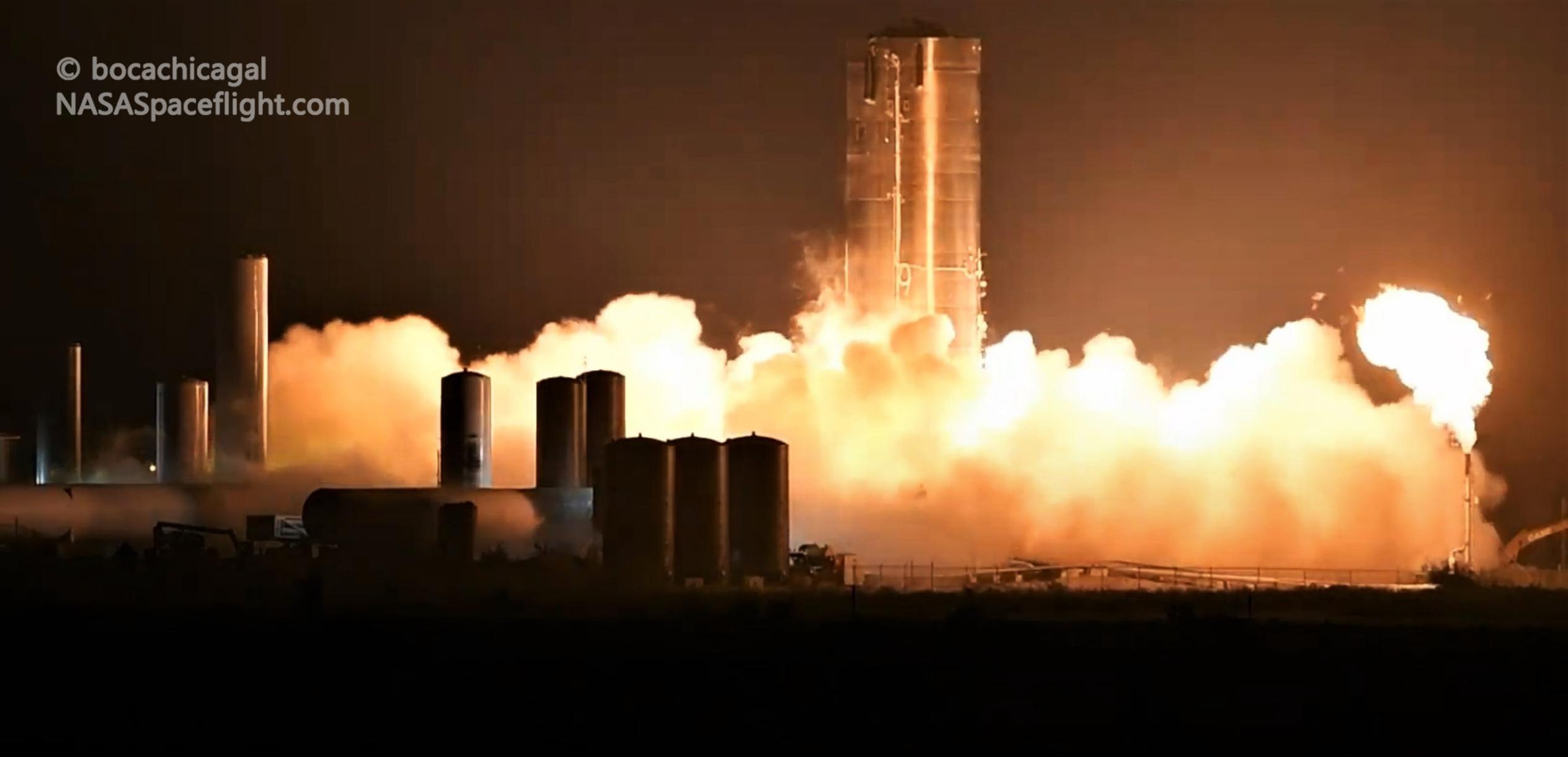
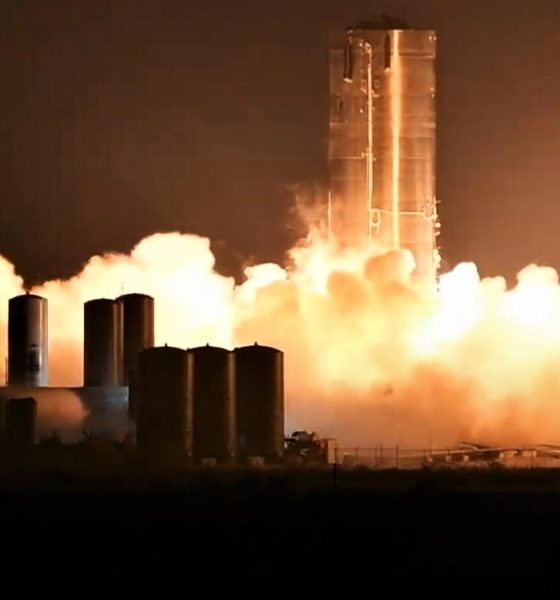
News
SpaceX’s Starship rocket just breathed fire for the first time (and survived)
SpaceX’s Starship rocket is a step closer to flight after the fourth full-scale prototype successfully fired up its high-performance Raptor engine for the first time and survived the ordeal.
By far the biggest technical milestone SpaceX’s Starship program has passed since its creation, the Starship serial number 4 (SN4) prototype’s May 5th static fire was just the latest in a series of rapid-fire tests completed over the last several days. The ship’s journey began back in late March when SpaceX technicians began integrating the first sections of its steel hull. Less than a month later, SpaceX officially completed Starship SN4’s tank and engine section – missing only a nosecone and header tanks – and rolled the rocket to the launch and test pad on April 23rd.
Barely two days later, Starship SN4 entered the testing phase, passing what CEO Elon Musk described as an “ambient pressure test” used to verify the structural integrity of the rocket’s propellant tanks with harmless nitrogen gas. Less than a day after that pressure test was completed, SpaceX kicked off a “cryogenic proof test” with the Starship – the same test that destroyed three full-scale prototypes in the five months prior.
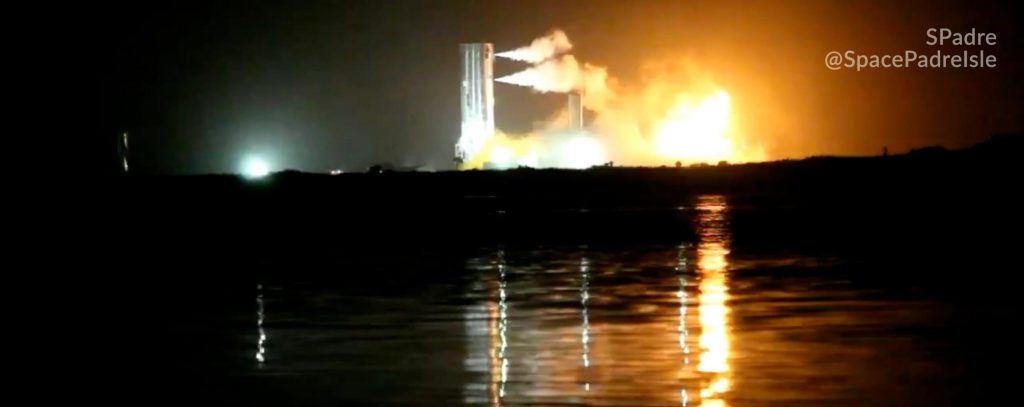
In the early morning of April 26th, Starship SN4 thus became the first full-scale prototype to pass (and survive) a cryogenic proof test, in which the ship’s normal liquid oxygen and methane was replaced with similarly frigid but non-explosive liquid nitrogen. According to Musk, SN4 was only pressurized to 4.9 bar (~70 psi), quite a distance away from the ~8.5 bar needed for safe orbital flight but reportedly more than enough to perform a small flight test.
Of course, Starship SN4 would first have to complete a bevy of additional tests – all arguably riskier than the cryogenic proof test it was the first to pass. That second, more challenging phase of testing began six days later on May 2nd.
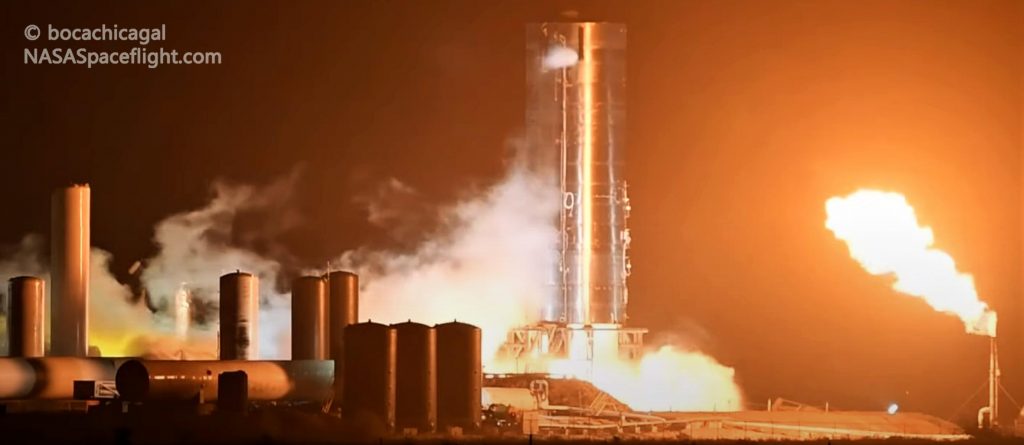
After some limited fueling effectively marking Starship SN4’s first partial wet dress rehearsal (WDR), SpaceX aborted the first test attempt on May 2nd. On May 3rd, Starship SN4 was successfully loaded with propellant once more and wound up performing what is known as a spin prime test with its lone Raptor engine. Over the course of a few hours, SpaceX then recycled (and rechilled) the ship’s methane propellant and successfully performed a preburner test, igniting two gas generators that spin up Raptor’s turbines and eventually mix in the combustion chamber.
Less than 24 hours later, SpaceX turned Starship SN4 around for the grand finale – an actual Raptor ignition test, also known as a static fire. Per NASASpaceflight’s unofficial livestream of the event, made possible thanks to local resident BocaChicaGal, Starship ignited its Raptor engine – a historic first for the launch vehicle program – at 8:57pm CDT on May 5th (01:57 UTC, May 6). Musk confirmed just a few hours after that the ignition test – lasting about 3 seconds – had been completed successfully.
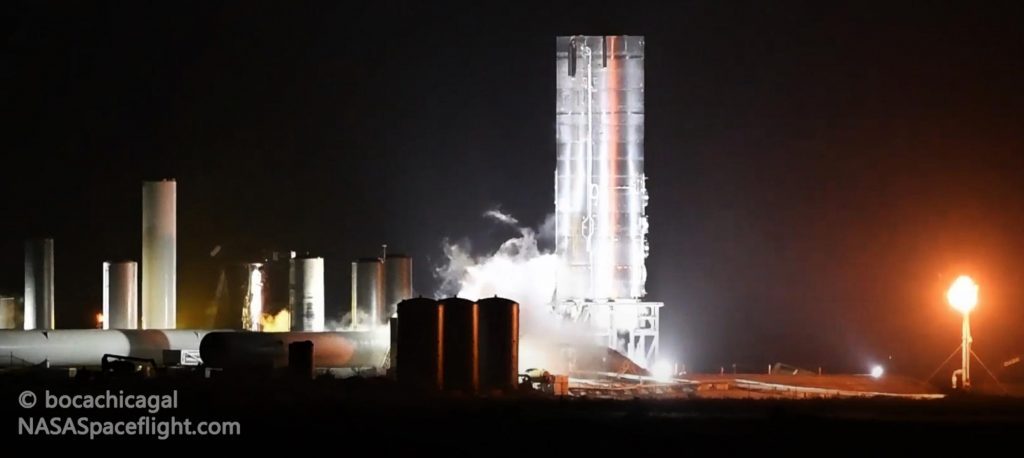
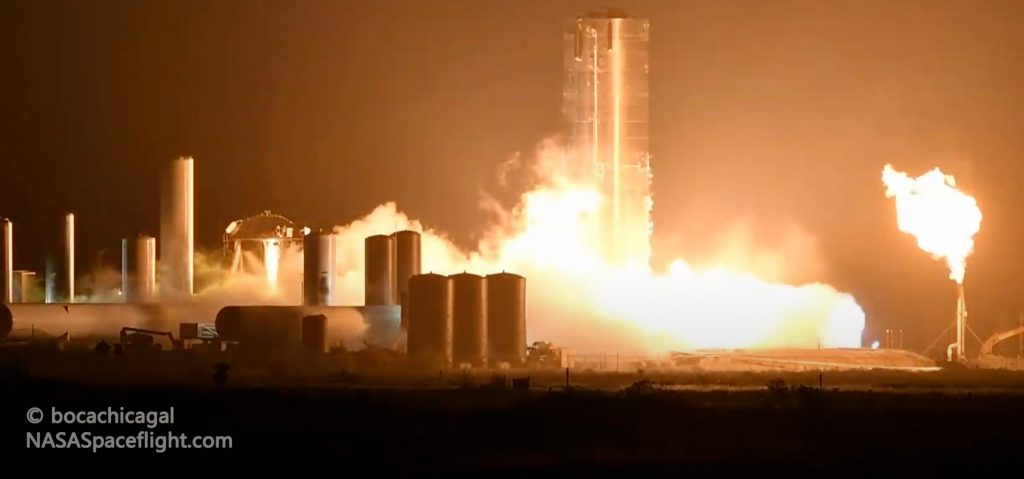
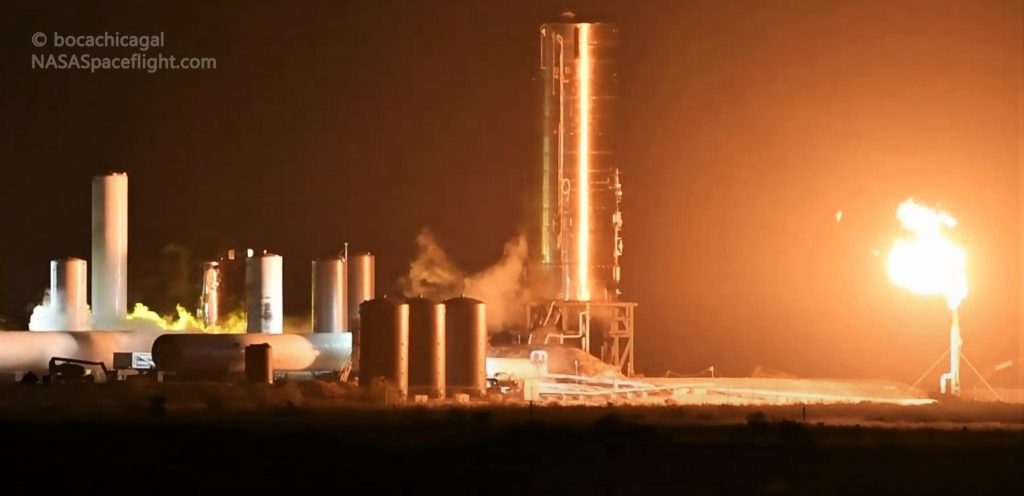
With that crucial milestone now behind it, Starship SN4 – perhaps pending an additional test or two – should effectively be clear to begin preparations for a 150m (500 ft) hop test later this month. Almost entirely contingent upon receiving a Federal Aviation Administration (FAA) launch license, that process could be finished tomorrow or take several days – or even weeks – to complete. Starship already has landing legs installed and wont need a nosecone for such a short and slow hop, but SpaceX may also need to install some kind of attitude control system (likely gas thrusters) before SN4 can safely fly.
Stay tuned for updates as we learn more about when a full-scale SpaceX Starship is scheduled to fly for the first time.

News
Tesla lands massive deal to expand charging for heavy-duty electric trucks
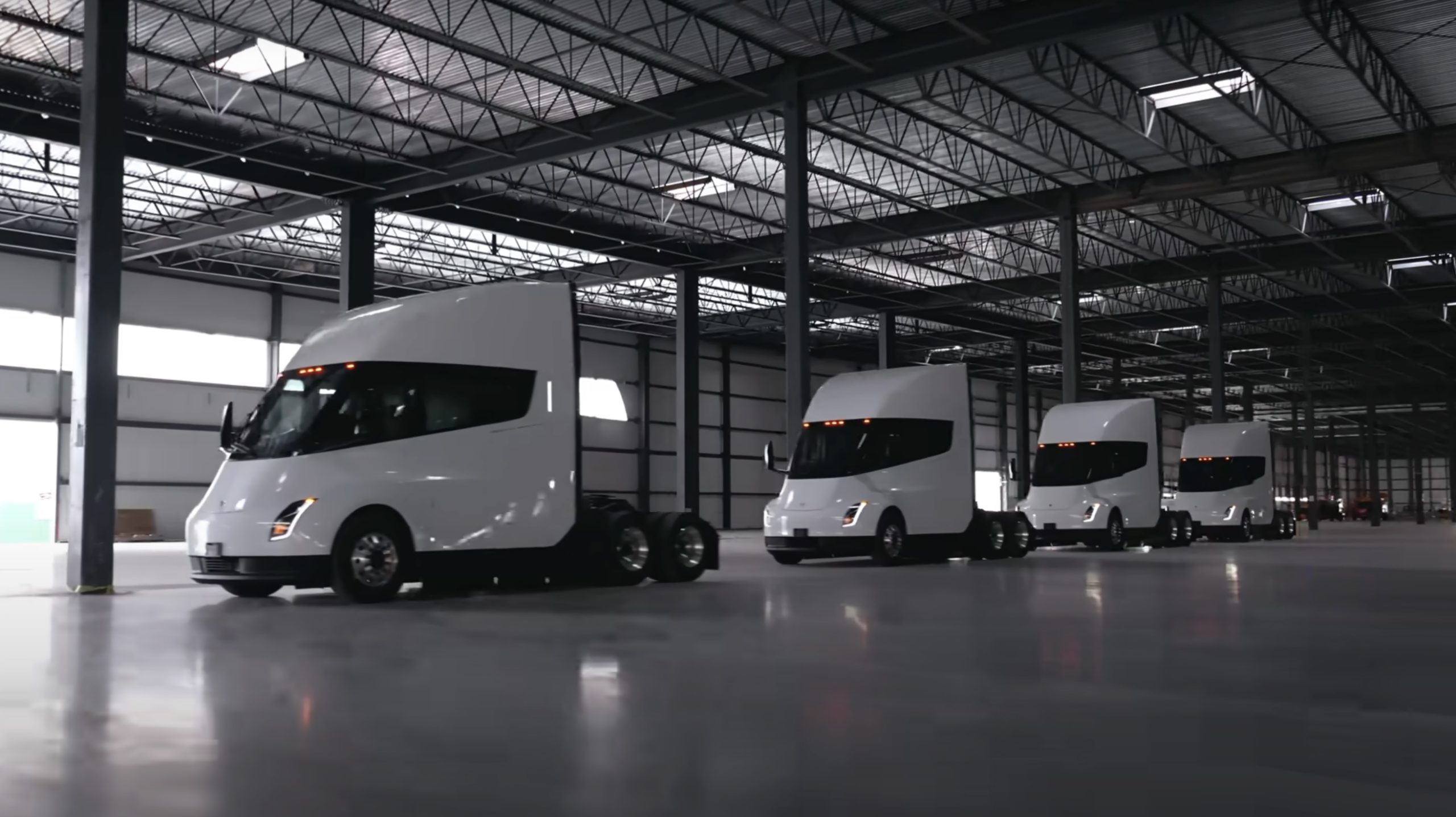
Tesla has landed a massive deal to expand its charging infrastructure for heavy-duty electric trucks — and not just theirs, but all manufacturers.
Tesla entered an agreement with Pilot Travel Centers, the largest operator of travel centers in the United States. Tesla’s Semi Chargers, which are used to charge Class 8 electric trucks, will be responsible for providing energy to various vehicles from a variety of manufacturers.
The first sites are expected to open later this Summer, and will be built at select locations along I-5 and I-10, major routes for commercial vehicles and significant logistics companies. The chargers will be available in California, Georgia, Nevada, New Mexico, and Texas.
Each station will have between four and eight chargers, delivering up to 1.2 megawatts of power at each stall.
The project is the latest in Tesla’s plans to expand Semi Charging availability. The effort is being put forth to create more opportunities for the development of sustainable logistics.
Senior Vice President of Alternative Fuels at Pilot, Shannon Sturgil, said:
“Helping to shape the future of energy is a strategic pillar in meeting the needs of our guests and the North American transportation industry. Heavy-duty charging is yet another extension of our exploration into alternative fuel offerings, and we’re happy to partner with a leader in the space that provides turnkey solutions and deploys them quickly.”
Tesla currently has 46 public Semi Charger sites in progress or planned across the United States, mostly positioned along major trucking routes and industrial areas. Perhaps the biggest bottleneck with owning an EV early on was charging availability, and that is no different with electric Class 8 trucks. They simply need an area to charge.
Tesla is spearheading the effort to expand Semicharging availability, and the latest partnership with Pilot shows the company has allies in the program.
The company plans to build 50,000 units of the Tesla Semi in the coming years, and with early adopters like PepsiCo, DHL, and others already contributing millions of miles of data, fleets are going to need reliable public charging.
🚨 Pilot working with Tesla to install and expand Semi Chargers is a perfect example of two industry leaders working together for the greater good.
As more commerce companies expand into EVs, Semi Charger will be more commonly available for electrified fleets, making efforts… pic.twitter.com/VPLIYyq15b
— TESLARATI (@Teslarati) January 27, 2026
Tesla is partnering with other companies for the development of the Semi program, most notably, a conglomeration with Uber was announced last year.
Tesla lands new partnership with Uber as Semi takes center stage
The ride-sharing platform plans to launch the Dedicated EV Fleet Accelerator Program, which it calls a “first-of-its-kind buyer’s program designed to make electric freight more affordable and accessible by addressing key adoption barriers.”
The Semi is one of several projects that will take Tesla into a completely different realm. Along with Optimus and its growing Energy division, the Semi will expand Tesla to new heights, and its prioritization of charging infrastructure.
Elon Musk
Elon Musk’s Boring Company opens Vegas Loop’s newest station
The Fontainebleau is the latest resort on the Las Vegas Strip to embrace the tunneling startup’s underground transportation system.
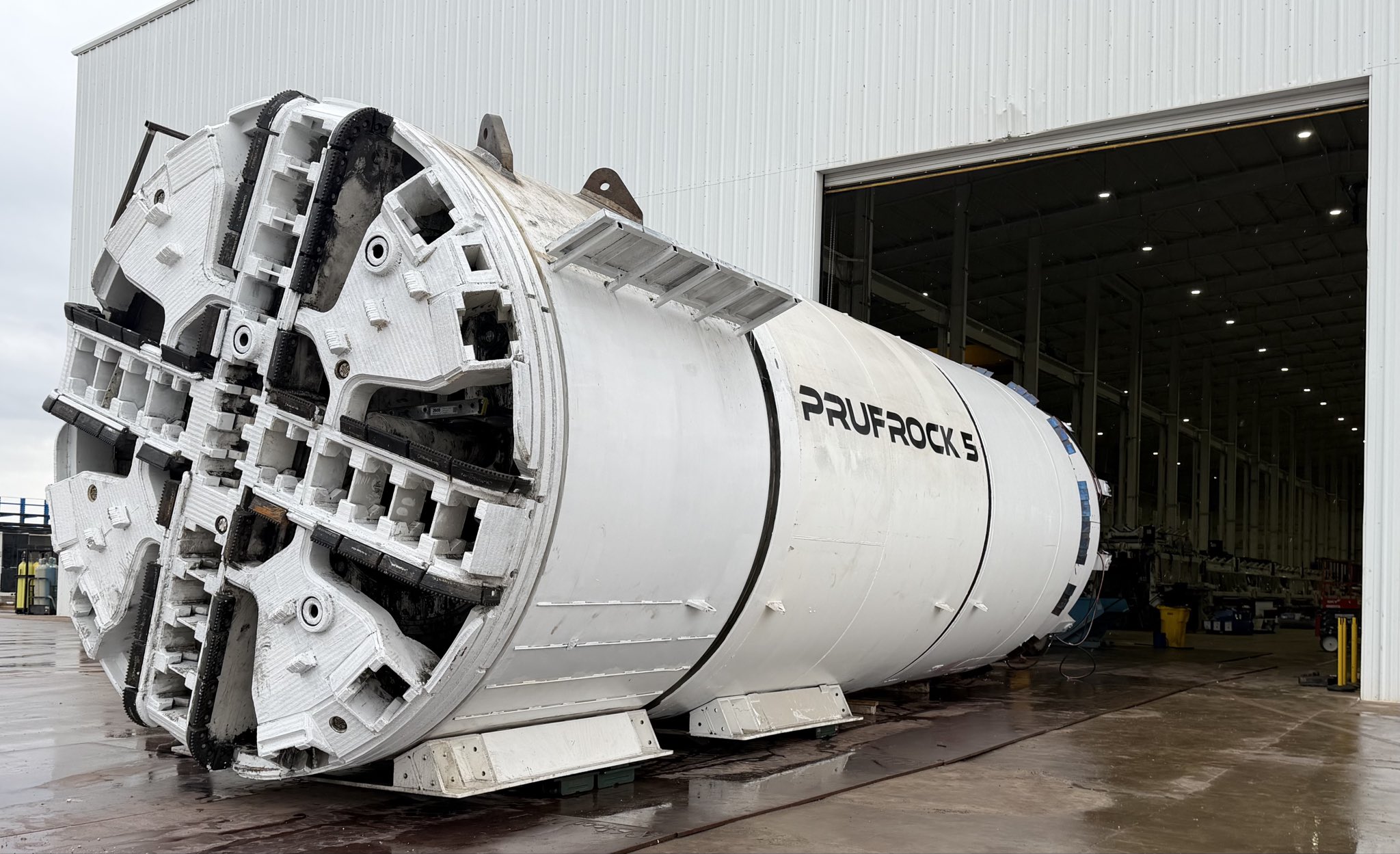
Elon Musk’s tunneling startup, The Boring Company, has welcomed its newest Vegas Loop station at the Fontainebleau Las Vegas.
The Fontainebleau is the latest resort on the Las Vegas Strip to embrace the tunneling startup’s underground transportation system.
Fontainebleau Loop station
The new Vegas Loop station is located on level V-1 of the Fontainebleau’s south valet area, as noted in a report from the Las Vegas Review-Journal. According to the resort, guests will be able to travel free of charge to the stations serving the Las Vegas Convention Center, as well as to Loop stations in Encore and Westgate.
The Fontainebleau station connects to the Riviera Station, which is located in the northwest parking lot of the convention center’s West Hall. From there, passengers will be able to access the greater Vegas Loop.
Vegas Loop expansion
In December, The Boring Company began offering Vegas Loop rides to and from Harry Reid International Airport. Those trips include a limited above-ground segment, following approval from the Nevada Transportation Authority to allow surface street travel tied to Loop operations.
Under the approval, airport rides are limited to no more than four miles of surface street travel, and each trip must include a tunnel segment. The Vegas Loop currently includes more than 10 miles of tunnels. From this number, about four miles of tunnels are operational.
The Boring Company President Steve Davis previously told the Review-Journal that the University Center Loop segment, which is currently under construction, is expected to open in the first quarter of 2026. That extension would allow Loop vehicles to travel beneath Paradise Road between the convention center and the airport, with a planned station located just north of Tropicana Avenue.
News
Tesla leases new 108k-sq ft R&D facility near Fremont Factory
The lease adds to Tesla’s presence near its primary California manufacturing hub as the company continues investing in autonomy and artificial intelligence.
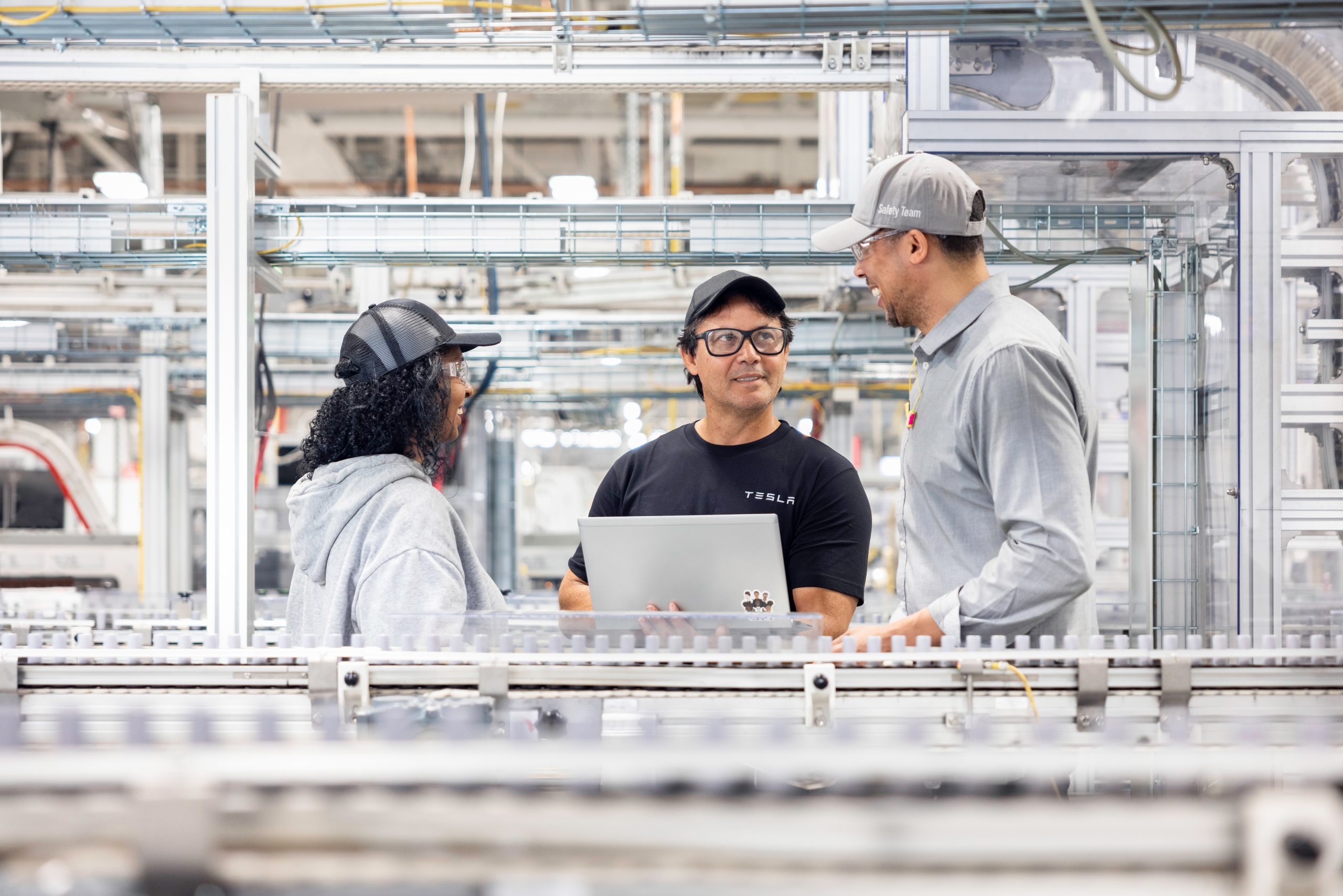
Tesla has expanded its footprint near its Fremont Factory by leasing a 108,000-square-foot R&D facility in the East Bay.
The lease adds to Tesla’s presence near its primary California manufacturing hub as the company continues investing in autonomy and artificial intelligence.
A new Fremont lease
Tesla will occupy the entire building at 45401 Research Ave. in Fremont, as per real estate services firm Colliers. The transaction stands as the second-largest R&D lease of the fourth quarter, trailing only a roughly 115,000-square-foot transaction by Figure AI in San Jose.
As noted in a Silicon Valley Business Journal report, Tesla’s new Fremont lease was completed with landlord Lincoln Property Co., which owns the facility. Colliers stated that Tesla’s Fremont expansion reflects continued demand from established technology companies that are seeking space for engineering, testing, and specialized manufacturing.
Tesla has not disclosed which of its business units will be occupying the building, though Colliers has described the property as suitable for office and R&D functions. Tesla has not issued a comment about its new Fremont lease as of writing.
AI investments
Silicon Valley remains a key region for automakers as vehicles increasingly rely on software, artificial intelligence, and advanced electronics. Erin Keating, senior director of economics and industry insights at Cox Automotive, has stated that Tesla is among the most aggressive auto companies when it comes to software-driven vehicle development.
Other automakers have also expanded their presence in the area. Rivian operates an autonomy and core technology hub in Palo Alto, while GM maintains an AI center of excellence in Mountain View. Toyota is also relocating its software and autonomy unit to a newly upgraded property in Santa Clara.
Despite these expansions, Colliers has noted that Silicon Valley posted nearly 444,000 square feet of net occupancy losses in Q4 2025, pushing overall vacancy to 11.2%.








